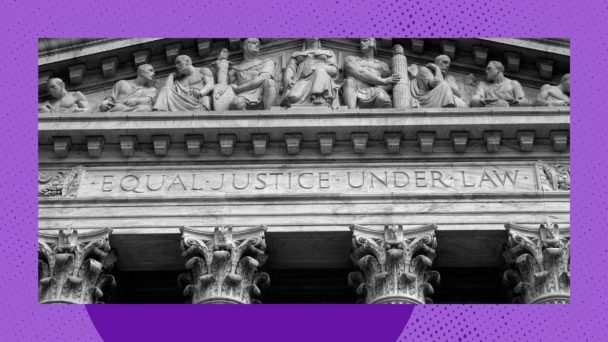When the Supreme Court issued its decision in New York State Rifle & Pistol Association v. Bruen two years ago, the Republican majority massively expanded gun rights by claiming that the Founding Fathers would have wanted it. Prior to 2022, judges evaluating the legality of gun safety laws were able to consider things like whether the government had a compelling reason for passing a given law. For the record, so far this year, there have been around 5,000 fatally compelling reasons for doing so.
But in his opinion, Justice Clarence Thomas declared that laws regulating firearms would henceforth be presumptively unconstitutional unless they are, in a judge’s estimation, “consistent with this nation’s historical tradition.” Under Bruen, if there did not exist similar enough laws, in a large enough quantity, in a time period that matters enough to Thomas, a gun law passed by lawmakers in 2024 is actually illegal.
This new standard is, ironically, inconsistent with hundreds of years of legal interpretation—the Second Amendment never turned on strict historical inquiries alone, until now—and it’s been a headache for lower court judges to apply. Because Bruen struck down a century-old law on the grounds that it was insufficiently historical, many lawyers and laypeople alike feared that the Supreme Court basically constitutionalized the Wild West.
In the years since, however, some lower courts actually have held that modern gun laws clear Bruen’s high bar. Yet even these good-faith efforts to apply the Court’s standard emphasize just how ridiculous adherence to that amateur historian standard is in the first place.

A sign outside the Supreme Court during oral argument in Bruen, November 2021 (Photo by Leigh Vogel/Getty Images for Giffords Law Center)
Earlier this month, for example, a Montana man was charged with illegally possessing a gun with the serial number scratched off. He tried to get the charge dismissed by arguing that the law, which Congress enacted in 1994, was unconstitutional under Bruen. But the district court disagreed after it dug up an “1805 Massachusetts law requiring the marking and proving of gun barrels,” and a similar law in Maine in 1821. That’s right: Whether a man in Montana was validly charged for breaking a federal law from the 90s depends on the ruminations of the nation’s first Massholes. Thankfully, two states’ legislators had this particular idea about gun safety 200 years ago, so it’s okay for us to do so today. Whew!
In Pennsylvania, a man was charged with violating a 1968 law prohibiting anyone with a “felony-equivalent conviction” from possessing a gun. He, too, argued that the law was unconstitutional. But in November 2022, the Third Circuit Court of Appeals upheld the law, in part because “the earliest firearm legislation in colonial America prohibited Native Americans, Black people, and indentured servants from owning firearms.” Apparently, if legislators want to enact gun safety laws without running afoul of the Constitution, they should take their cues from slavery.
In its opinion, the Third Circuit repeatedly disclaimed those historical laws as “repugnant” and said that it cited the examples “merely to demonstrate the Nation’s tradition of imposing categorical, status-based bans on firearm possession.” A game of racism-scattergories may not strike you as an appropriate method of constitutional interpretation, but the Supreme Court said it wanted history and, well, this is American history. (The Supreme Court is now considering whether to take this case up on appeal.)
Finally, in Florida, the NRA challenged the legality of a state law prohibiting persons under the age of 21 from buying firearms. But last year, a three-judge panel of the Eleventh Circuit upheld the law after finding considerable evidence of a historical tradition of age-based restrictions in the name of public safety. “At least nineteen states and the District of Columbia banned the sale and even the giving or loaning of handguns and other deadly weapons to 18-to-20-year-olds by the close of the nineteenth century,” the panel wrote.
However, this victory was short-lived. A few months later, the court vacated the decision and agreed to rehear the case en banc—before the entire Eleventh Circuit, which is controlled by Republican judges. There doesn’t appear to be anything glaringly incorrect about the panel’s decision—and if there was, the full court didn’t specify—but the rehearing gives conservative judges the chance to simply redo history they didn’t like.
Exclusively arguing about history and tradition holds judges back from considering the actual toll of gun violence and Congress’s power to do anything about it. Instead, Bruen assigns to judges the embarrassing job of suggesting explicitly racist statutes may have had a point after all. Judges are attempting to play the game the way originalism requires them to, but if you’re playing by originalism’s rules, you’ve already lost.




